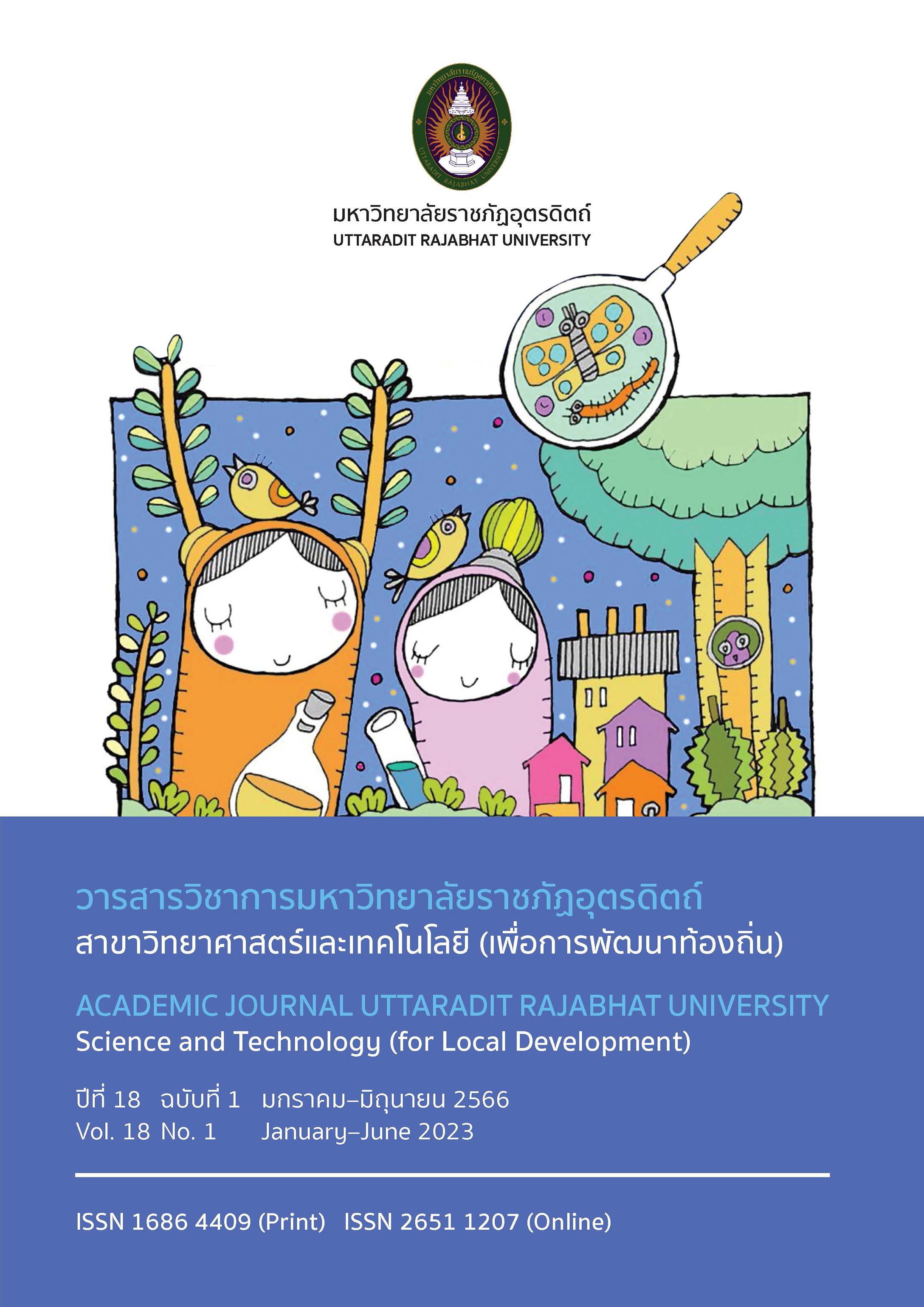EFFECTIVENESS OF DIGITAL GAME-BASED LEARNING AND LEARNING VIA SOCIAL MEDIA PROGRAM ON KNOWLEDGE AND SKILLS IN CLINICAL RISK PREVENTION
Main Article Content
Abstract
The objectives of this mixed methods research were to study the effectiveness of digital game-based learning and learning via social media program on knowledge, skills in clinical risk prevention of 4th year nursing students from Boromarajonani College of Nursing Nakhon Lampang, and outcomes by the students after using the learning program. The study was divided into 2 phases. The first phase was quasi experimental research with the one-group pretest-posttest design, and the second phase was qualitative research with brainstorming after the practical skill. The samples were the fourth-year nursing students in the primary medical care practicum, all samples were selected by purposive sampling of 64 students and for qualitative samples of 20 students. The Instruments for data collection were the digital game-based learning and learning via social media program, self-defense and adverse event knowledge assessment form, the adverse event prevention skills assessment form, and question guideline in the post practical skill brainstorming. Quantitative data were analyzed with descriptive statistics, and Dependent Pair t-test. Qualitative data were analyzed by thematic analysis. The findings of the effectiveness of digital game-based learning and learning via social media program on knowledge, skills in clinical risk prevention revealed that knowledge and skill in preventing clinical risk were significantly higher than before received the program (p< .001), and there was no incidence of clinical risk from practical skills. The results also showed that after the nursing students received the intervention program, the learners had skills in developing agility and soft skills for clinical risk prevention. Hence, these learning program could encourage the prevention of clinical risk in practice.
Downloads
Article Details

This work is licensed under a Creative Commons Attribution-NonCommercial-NoDerivatives 4.0 International License.
References
ชณวรรต ศรีลาคำ และพัฒนา สอดทรัพย์. (2562). ทิศทางการเรียนรู้ด้วยตนเองตามนโยบายประเทศไทย 4.0. วารสารมนุษยศาสตร์ ฉบับบัณฑิตศึกษา มหาวิทยาลัยรามคำแหง, 8(1), 49-62.
ณัฏฐา ผิวมา. (2564). การจัดการเรียนรู้โดยใช้เกมเป็นฐานด้วยบูรณาการเทคโนโลยีเกมคอมพิวเตอร์. วารสารมนุษยศาสตร์และสังคมศาสตร์ มหาวิทยาลัยราชพฤกษ์, 7(ฉบับพิเศษ), 1-15.
ภารดี ชาวนรินทร์, สมฤดี กีรตวนิชเสถียร, มยุรี กมลบุตร, และปราชญา ศุภฤกษ์โยธิน. (2565). ซอล์ฟสกิล : ทักษะที่จำเป็นสำหรับวิชาชีพพยาบาล. วารสารวิชาการสุขภาพภาคเหนือ, 9(1), 1-17.
มาลี คำคง และจีระภา นะแส. (2563). การบริหารความเสี่ยงในการฝึกปฏิบัติการพยาบาล. วารสารเครือข่ายวิทยาลัยพยาบาลและการสาธารณสุขภาคใต้, 7(3), 10-22.
ราชการ สังขวดี และทิพรัตน์ สิทธิวงศ์. (2565). ผลการใช้สื่อสังคมร่วมกับการเกมออนไลน์เพื่อส่งเสริมการเรียนรู้ สำหรับนิสิตระดับปริญญาตรี คณะศึกษาศาสตร์ มหาวิทยาลัยนเรศวร. วารสารศึกษาศาสตร์ มหาวิทยาลัยนเรศวร, 24(1), 236-245.
วิทยา วาโย, อภิรดี เจริญนุกูล, ฉัตรสุดา กานกายันต์, และจรรยา คนใหญ่. (2563). การเรียนการสอนแบบออนไลน์ ภายใต้สถานการณ์แพร่ระบาดของไวรัส COVID-19: แนวคิดและการประยุกต์ใช้จัดการเรียนการสอน. วารสารศูนย์อนามัยที่ 9, 14(34), 285-298.
วิทยาลัยพยาบาลบรมราชชนนี นครลำปาง. (2560). มคอ.2 หลักสูตรพยาบาลศาสตรบัณฑิต (หลักสูตรปรับปรุง พ.ศ.2560) และมาตรฐานการเรียนรู้. วิทยาลัยพยาบาลบรมราชชนนี นครลำปาง.
วิทยาลัยพยาบาลบรมราชชนนี นครลำปาง. (2564). สถิติข้อมูลความเสี่ยงทางคลินิกและเหตุการณ์ไม่พึงประสงค์จากการฝึกภาคปฏิบัติ กลุ่มงานวิชาการ. วิทยาลัยพยาบาลบรมราชชนนี นครลำปาง.
วิลาวัลย์ อินทร์ชำนาญ. (2561). การพัฒนาสื่อการเรียนรู้ประเภทเกมเพื่อให้ความรู้ในเรื่องกฎ ระเบียบและข้อปฏิบัติในศูนย์ฝึกและอบรมเด็กและเยาวชน (รายงานผลการวิจัย). มหาวิทยาลัยธุรกิจบัณฑิตย์.
Best, J. W. (1977). Research in Education. (3rd ed.). Prentice Hall.
Bloom, B. S., Hastings, J. T., & Madaus, G. F. (1971). Handbook on Formative and Summative Evaluation of Student Learning. McGraw-Hill.
Cohen, J. (1997). Statistical power for the behavioral sciences. (2nd ed). Lawrence Erlbaum Associates. Retrieved on May 8, 2022, from https://www.utstat.toronto.edu/~brunner/oldclass/378f16/readings/CohenPower.pdf
Dunne, S. (2019, 31 July). Research Preview: Unlocking Organizational Agility to Drive Digital Growth. Workday. Retrieved on May 8, 2022, from https://blogs.workday.com/research-preview-unlocking-organizational-agility-to-drive-digital-growth/
Guglielmino, L. M. (1977). Development of the Self-Directed Learning Readiness Scale. [Unpublished doctoral dissertation]. University of Georgia.
Husserl, E. (1965). Phenomenology and the Crisis of Philosophy (Lauer Q. trans.). Harper & Row.
Mitchinson, A. & Morris, R. (2014). Learning About Learning Agility Center for Creative Leadership. Center for Creative Leadership. Retrieved on May 8, 2022, from https://cclinnovation.org/wp-content/uploads/2020/02/learningagility.pdf.
Oblinger, D. G. (2006, 27 July). Games and learning: digital games have the potential to bring play back to the learning experience. Educause. Retrieved on May 8, 2022, from https://er.educause.edu/-/media/files/article-downloads/eqm0630.pdf


